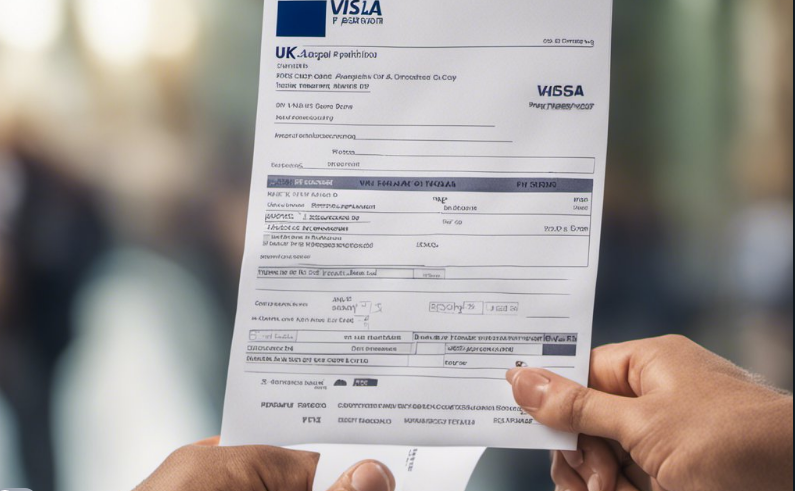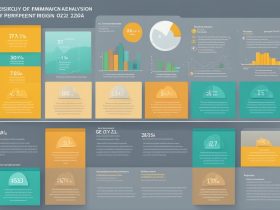UK Visitor Visa Fees; UK visitor visa fees are an important consideration for anyone planning a trip to the UK. The cost of obtaining a visa can vary depending on the type of visa and the length of stay. As of October 4th, 2023, the Home Office has revised its immigration and nationality fees, which has resulted in changes to the cost of UK visitor visas.
According to the Home Office website, the cost of a standard visitor visa for a stay of up to 6 months is currently £115. However, the cost of a long-term visitor visa for up to 2 years has increased from £376 to £400, while the cost of a long-term visitor visa for up to 5 years has increased from £670 to £837. It is important to note that these fees are subject to change, so it is always a good idea to check the latest information before applying for a visa.
For those visiting the UK for medical reasons or academic purposes, the cost of a standard visitor visa is currently £200 for a stay of up to 11 or 12 months, respectively. The Home Office also offers a 2-year long-term visitor visa for a cost of £752, and a 5-year long-term visitor visa for a cost of £1,338. It is important to carefully consider the length of stay and purpose of the visit when deciding which type of visa to apply for.

Basic Information on UK Visitor Visa Fees
UK visitor visa fees are charged by the Home Office for individuals who wish to visit the UK for a short period of time. These fees are subject to change and are determined by the type of visa and the duration of the visit.
As of October 4, 2023, the fees for UK visitor visas are as follows:
| Type of Visa | Fee |
|---|---|
| Standard Visitor Visa (up to 6 months) | £95 |
| Standard Visitor Visa (up to 2 years) | £361 |
| Standard Visitor Visa (up to 5 years) | £655 |
| Standard Visitor Visa (up to 10 years) | £822 |
It is important to note that these fees are for applications made outside of the UK. If an individual is already in the UK and wishes to extend their stay, the fees may be different.
Additionally, there may be additional fees for certain services such as priority processing or biometric enrolment. These fees vary and can be found on the Home Office website.
It is recommended that individuals apply for their visitor visa well in advance of their planned travel dates to allow for sufficient processing time. The average processing time for a UK visitor visa is approximately 3 weeks, but this may vary depending on the individual circumstances of the application.
Overall, the fees for UK visitor visas are subject to change and can vary depending on the type of visa and duration of the visit. It is important for individuals to check the most up-to-date fees on the Home Office website and to apply well in advance of their planned travel dates to allow for sufficient processing time.
Factors Affecting the Visa Fees
When applying for a UK visitor visa, there are several factors that can affect the visa fees. These factors include the length of stay, type of visa, and country of application.
Length of Stay
The length of stay is one of the most significant factors that can affect the visa fees. Generally, the longer the stay, the higher the visa fees will be. For instance, a six-month visitor visa will cost less than a two-year visitor visa. It is important to note that the length of stay must be justified by the purpose of the visit.
Type of Visa
The type of visa is another factor that can affect the visa fees. The UK offers different types of visitor visas, such as standard visitor visa, marriage visitor visa, and business visitor visa. Each type of visa has its own specific requirements and fees. For example, the fees for a marriage visitor visa will be different from those for a standard visitor visa.
Country of Application
The country of application is also a factor that can affect the visa fees. The UK has different visa application centers in different countries. The visa fees may vary depending on the country of application. For instance, the visa fees for a visitor visa in the US may be different from those in India.
In conclusion, the visa fees for a UK visitor visa are influenced by several factors, including the length of stay, type of visa, and country of application. It is important to carefully consider these factors before applying for a visitor visa to ensure that the correct fees are paid and the visa application is successful.
Payment Methods
When applying for a UK Visitor Visa, there are several payment methods available to applicants. The fee for a UK Visitor Visa varies based on the category of the visa and the duration of stay. Applicants should check the current fee before making a payment.
Online Payment
The UK government has moved to online payment for UK visas, including the UK Visitor Visa. Applicants can pay online using Visa and MasterCard credit or debit cards. Alternatively, they can also pay through ‘e-wallet’ Skrill service. The fee will be levied in UK pounds. Applicants should ensure that they have sufficient funds in their account to cover the fee.
Cash Payment
If applicants prefer to pay in cash, they can pay in dollars or sterling equivalent at the Embassy cashier. However, the Embassy does not accept any other currency or personal checks. Applicants should note that the Embassy does not provide change, so they should bring the exact amount.
Credit/Debit Card Payment
Applicants can pay using Credit Card – Visa, MasterCard, Diners Club, Discover or American Express or Debit Card – Visa. However, the Embassy does not accept any other credit or debit cards. Applicants should ensure that their card is valid and has sufficient funds to cover the fee.
Courier Service Payment
If applicants choose to apply for a visa through the Courier Service, they can pay by Credit Card – Visa, MasterCard, Diners Club, Discover or American Express or Debit Card – Visa. However, the Embassy does not accept any other credit or debit cards. Applicants should note that the Courier Service charges an additional fee for their services.
Overall, applicants have several payment methods available to them when applying for a UK Visitor Visa. They should choose the method that is most convenient for them and ensure that they have sufficient funds to cover the fee.
Refund Policy
If you cancel your UK visitor visa application, you may be eligible for a refund of the application fee. However, whether you receive a refund or not depends on the stage of your application when you cancel.
According to the UK Visas and Immigration’s refund policy, you will not receive a refund if your application has already been processed and a decision has been made. This means that if you cancel your application after you have received a decision, you will not be able to get your money back.
On the other hand, if you cancel your application before it has been processed, you will be eligible for a refund. The amount of the refund you receive will depend on how far along your application was in the process. For example, if you cancel your application before it has been assigned to a caseworker, you will receive a full refund. However, if your application has already been assigned to a caseworker, you will only receive a partial refund.
It’s important to note that you will not receive a refund of the application fee if your application is rejected or refused. This means that if your application is denied, you will not be able to get your money back.
If you believe you are entitled to a refund, you can apply for one by contacting UK Visas and Immigration. Keep in mind that processing times for refunds can vary, so it may take some time to receive your money back.
Fee Exemptions
Some individuals may be exempt from paying the UK visitor visa fee. Here are some of the common scenarios where an individual may be exempt from paying the fee:
- Diplomats and Official Visits: Individuals traveling to the UK on official business as a diplomat or on behalf of a government may be exempt from paying the visa fee. This includes individuals who are representing an international organization or visiting the UK to attend an official meeting or conference.
- Transit Passengers: Individuals who are transiting through the UK and will not be staying for more than 48 hours may be exempt from paying the visa fee.
- Visiting Family Members of EEA Nationals: If an individual is visiting a family member who is a citizen of the European Economic Area (EEA) and has a valid UK residence card, they may be exempt from paying the visa fee.
- Children Under 18: Children under the age of 18 who are traveling to the UK to visit a parent, grandparent, or legal guardian may be exempt from paying the visa fee.
- Medical Treatment: Individuals who are traveling to the UK for medical treatment may be exempt from paying the visa fee. However, they will need to provide evidence of their medical condition and the treatment they will be receiving.
It’s important to note that these exemptions may not apply to every individual and each case will be assessed on its own merits. Individuals who believe they may be exempt from paying the visa fee should check with the UK government website or consult with a legal professional.
Changes in Visa Fees
As of October 4, 2023, the UK government has announced that visa application fees will increase significantly. The new fees were published earlier this year, and they will affect all visa categories. The fees for family, settlement, and citizenship visas will increase by 20%, while visa application fees will increase by between 15-35% depending on the category.
The changes mean that the cost of a visit visa for less than six months will rise by £15 to £115, while the fee for applying for a student visa from outside the UK will increase by £127 to £836. The fee for a Tier 2 visa, which is for skilled workers, will increase by £201 to £1,050.
It is important to note that these fees are subject to change and should be checked before submitting an application. Additionally, some applicants may be eligible for a fee waiver or reduction based on their circumstances.
The increase in visa fees is part of the government’s efforts to generate revenue and manage immigration. It is also expected to help fund improvements to the UK’s immigration system, including the development of new technology and processes to improve the application process.
Overall, these changes will have a significant impact on those applying for visas to enter the UK. It is important to stay up-to-date with the latest fee information and to plan accordingly when submitting an application.
Cost Comparison with Other Countries
UK visa fees have been a topic of discussion for many years, with some arguing that they are too high compared to other countries. To provide some context, a comparison of visa costs in other countries can be helpful.
According to a source, the standard Schengen Visa – allowing for 90 days of travel for business or leisure within the area’s 27 EU countries – costs €80, or £69. This fee is lower than the cost of a UK Standard Visitor Visa, which costs £95 for a six-month visa, £361 for a two-year visa, and £655 for a five-year visa.
However, it is worth noting that the UK offers a range of visa options, including longer-term visas for those who wish to stay in the country for an extended period. In comparison, some countries only offer short-term visas, which can be limiting for those who wish to stay for a longer period.
Another source provides a chart of visa costs by country. The chart lists countries where paid tourist visas were required, visa cost per person, length of visa, and where the visa was received (embassy or land border/airport). The chart shows that visa costs vary widely by country, with some countries offering free entry while others charge hundreds of dollars for a visa.
Overall, while UK visa fees may be higher than some other countries, it is important to consider the range of visa options available and the length of stay allowed. Additionally, visa costs can vary widely by country, so it is important to research visa requirements and costs before planning a trip.
Frequently Asked Questions
What are the different types of UK visas available?
There are various types of UK visas available depending on the purpose of your visit. Some of the most common types of visas include Standard Visitor visa, Work visa, Student visa, and Family visa. Each visa has its own eligibility criteria, fees, and processing time.
What is the cost of a UK tourist visa from India?
The cost of a UK tourist visa from India depends on the duration of your visit. For a Standard Visitor visa, the fee is £95 for a 6-month visa, £179 for an 11-month visa, and £361 for a 2-year visa. However, the fees are subject to change, so it’s recommended to check the official UK government website for the latest updates.
How much does a UK visit visa from Pakistan cost?
The cost of a UK visit visa from Pakistan also depends on the duration of your visit. For a Standard Visitor visa, the fee is £95 for a 6-month visa, £179 for an 11-month visa, and £361 for a 2-year visa. However, the fees are subject to change, so it’s recommended to check the official UK government website for the latest updates.
What is the processing time for a UK Standard Visitor visa?
The processing time for a UK Standard Visitor visa varies depending on the country of application. It usually takes around 15 working days for a decision to be made, but it can take longer if additional documents are required or if the application is referred to the UK Visas and Immigration department for further review.
What are the fees for a UK work visa?
The fees for a UK work visa depend on the type of visa and the duration of your stay. For example, the fee for a Tier 2 (General) visa is £610 for a 3-year visa, while the fee for a Tier 5 (Youth Mobility Scheme) visa is £244. However, the fees are subject to change, so it’s recommended to check the official UK government website for the latest updates.
What is the cost of a UK Student visa?
The cost of a UK Student visa depends on the type of course you are applying for and the duration of your stay. For a Tier 4 (General) student visa, the fee is £348 for a visa of up to 6 months, £475 for a visa of more than 6 months and up to 11 months, and £822 for a visa of more than 11 months. However, the fees are subject to change, so it’s recommended to check the official UK government website for the latest updates.
Related post:









Leave a Reply
View Comments